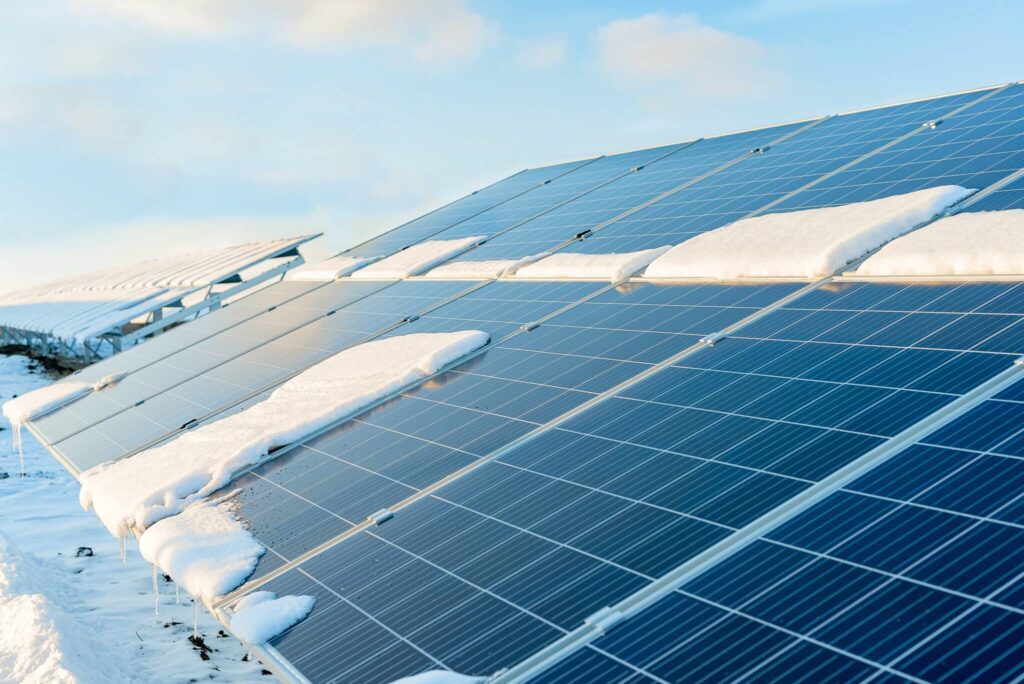Installing solar panels in winter requires careful consideration to ensure optimal performance and durability. Here are some key factors to pay attention to.
- Snow accumulation: Snow can cover solar panels, reducing their ability to generate electricity. It’s important to install panels at an angle that allows snow to slide off easily. Additionally, some systems come with features like heating elements to help melt snow and ice.
- Orientation and tilt: Proper orientation and tilt are crucial for maximizing sunlight exposure. In winter, the sun is lower in the sky, so adjusting the tilt of the panels to a steeper angle can help capture more sunlight. The optimal tilt angle may vary depending on your location.
- Cleaning: Winter conditions can lead to the accumulation of dirt, dust, and other debris on solar panels. Regular cleaning is essential to maintain efficiency. Snow should be cleared off the panels carefully using a soft brush or a long-handled tool to avoid damage.
- Temperature considerations: Solar panels generally perform better in colder temperatures, but extreme cold can still affect efficiency. Check the manufacturer’s specifications for the temperature coefficient to understand how the panels perform in low temperatures.
- Battery storage: In winter, days are shorter, and there may be less sunlight. Installing an energy storage system, such as batteries, can help store excess energy generated during sunny periods for use during cloudy days or nights.
- Wiring and connections: Cold temperatures can affect the flexibility and conductivity of wires. Ensure that all wiring and connections are designed to withstand winter conditions. Proper insulation and protection against moisture are crucial.
- Inverter placement: Inverters, which convert DC power generated by the solar panels into AC power for use in your home, can generate heat during operation. Ensure proper ventilation and consider locating the inverter in a space where it won’t be affected by extreme cold or snow.
- Professional installation: Given the technical aspects of solar panel installation, it’s advisable to hire a professional installer. They can assess your specific location, local climate conditions, and other factors to design and install a system that performs optimally in winter and throughout the year.
By paying attention to these factors, you can ensure that your solar panel system is well-equipped to handle winter conditions and provide reliable energy throughout the year.


